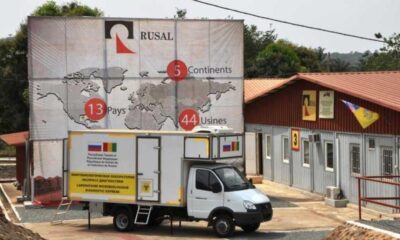Agriculture
Use of ICTs by youth in family farming & examples of projects/initiatives -By Dr. Santosh Kumar Mishra (Ph. D.)

o How can we make better use of ICTs to address these issues?
Information and Communication Technology (ICT) not only improves the status of young people using it, but also of the farming sector in general. Youngsters who used to see farming as a type of last resort source of income without much perspective now see it as a potentially strong source of rewarding business.
Smallholdings in developing countries, which have been long associated with poor farm practices, low productivity, low income, intensive labour, lack of training, gender inequalities and financial risks, have made the sector particularly unattractive to a new generation of farmers. Better production techniques and market-oriented strategies will help generate a sustainable source of income while contributing to the supply of agricultural produce to satisfy the world’s increasing food demands. To ensure the future viability of the agricultural sector, tackle rural poverty and generate employment opportunities, it is crucial to equip the farmers of tomorrow with the right tools. Efforts to increase youth participation and boost economic development in the agricultural sector are amplified when an integrated approach to ICTs and capacity development is put in place.
ICTs can play a role in countering youth migration to urban areas by enhancing access to market information, production techniques, new technologies and financing opportunities. Efforts should be aimed at further fostering youth involvement in agricultural activities and decision-making processes. These efforts can seize on the youth’s affinity for using ICTs, their capacity to innovate and their propensity for taking higher entrepreneurial risks.
o Do we have examples of projects/initiatives in this area?
One example is IICD’s Economic Development Program in Kenya. In order to improve livelihoods of farmers in their respective regions, IICD and local private sector partners train and coach implementing partners and farmers in the use of text
or voice messages to receive and use market price information and short messages with production information on their mobile phones. IICD links farmer organizations and local service providers, ICT advisors and research institutes to provide accurate and timely information. Mobile phones are also used to collect productivity information in the field and to link up farmers with buyers – both increase the efficiency of the value chain and improve communication between the different players in that chain. The main advantage of IICD’s approach is that it integrates various types of information in one comprehensive program, building on partners’ skills step-by-step. Market price information is therefore complemented by other types of information and other media. IICD has enabled partners to select media most appropriate to their context: sometimes this involves radio or feature phones, other times the focus is on more elaborate systems like Interactive Voice Response systems, which also allow illiterate farmers to benefit from the information. IICD and partner organizations develop relevant content and training materials jointly with the farmers involved.
Dr. Santosh Kumar Mishra (Ph. D.),
Technical Assistant,
Population Education Resource Centre (PERC),
Department of Continuing and Adult Education and Extension Work,
N. D. T. Women’s University,
Patkar Hall Building, First Floor, Room. No.: 03,
1, Nathibai Thackerey Road,
Mumbai – 400020, Maharashtra, India.
Email: drskmishrain@yahoo.com



















